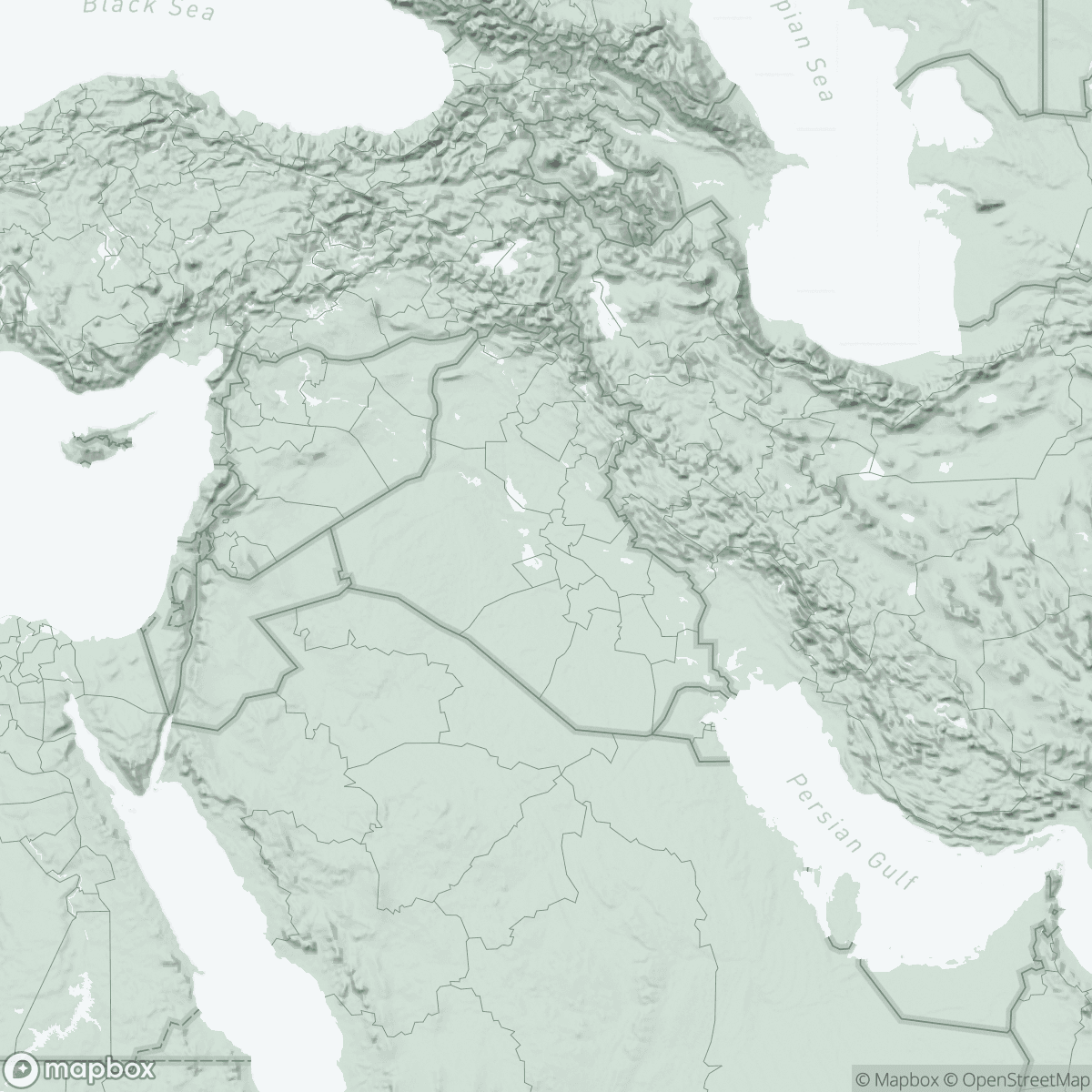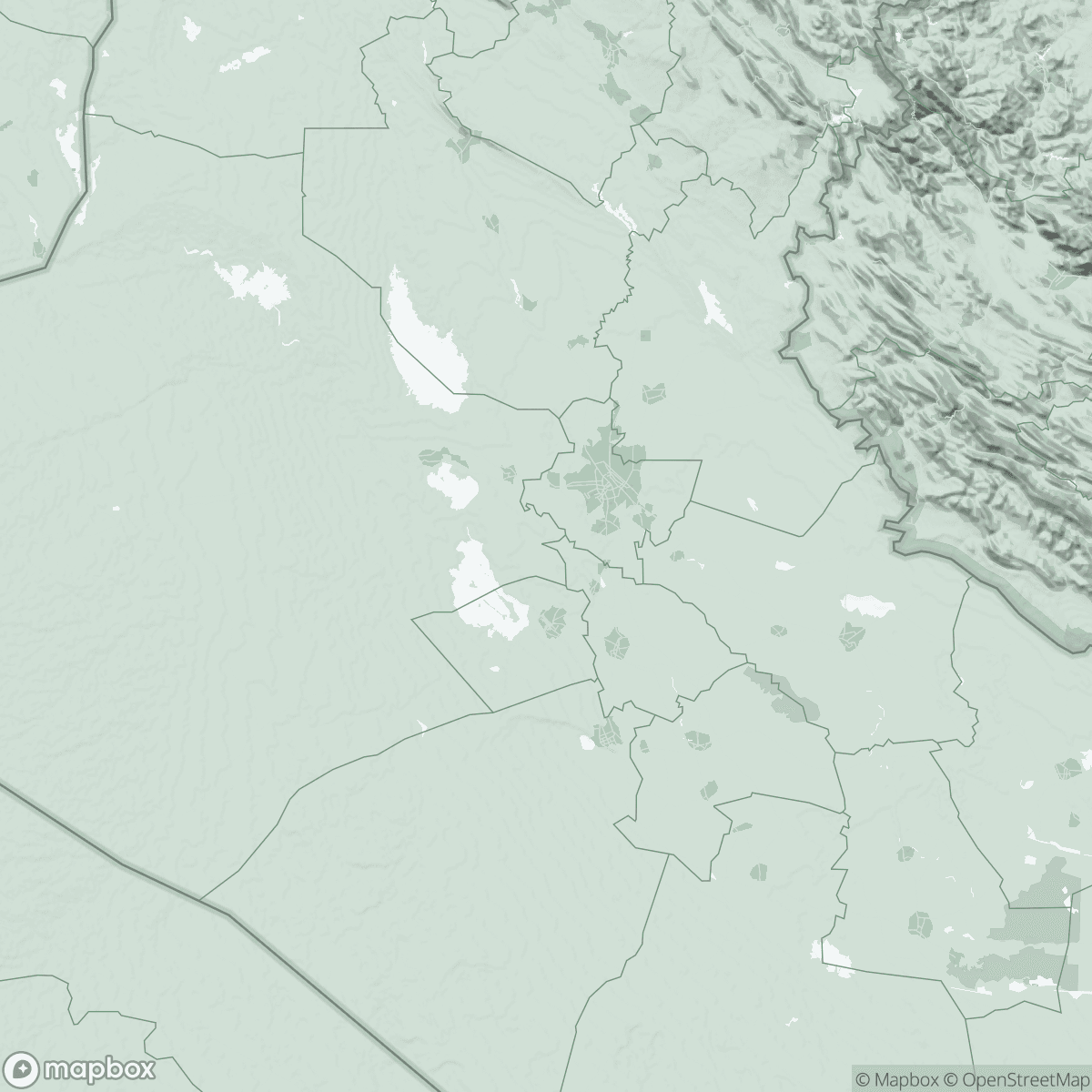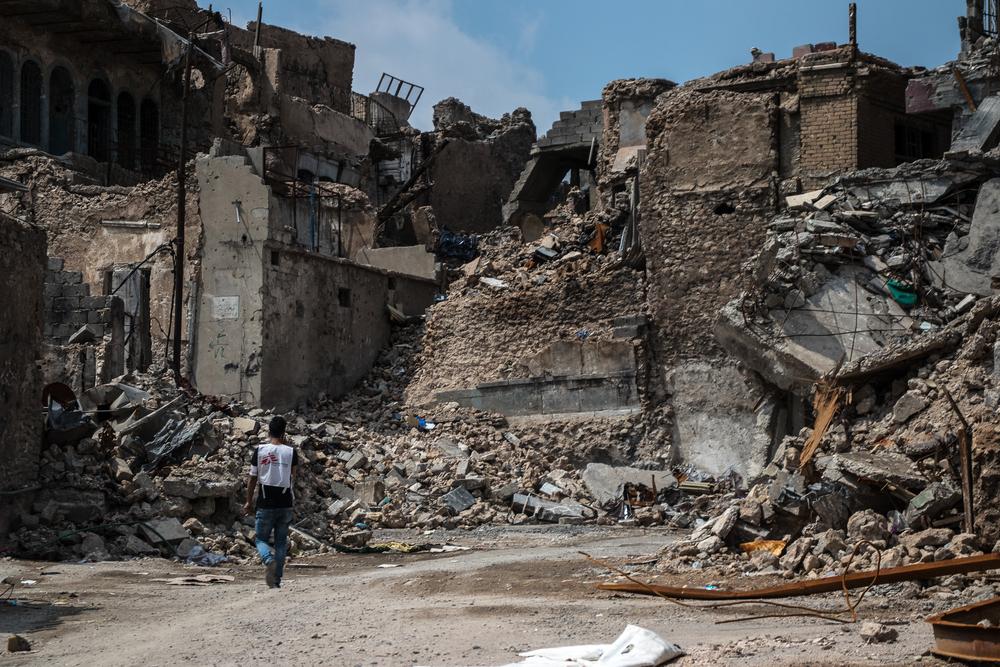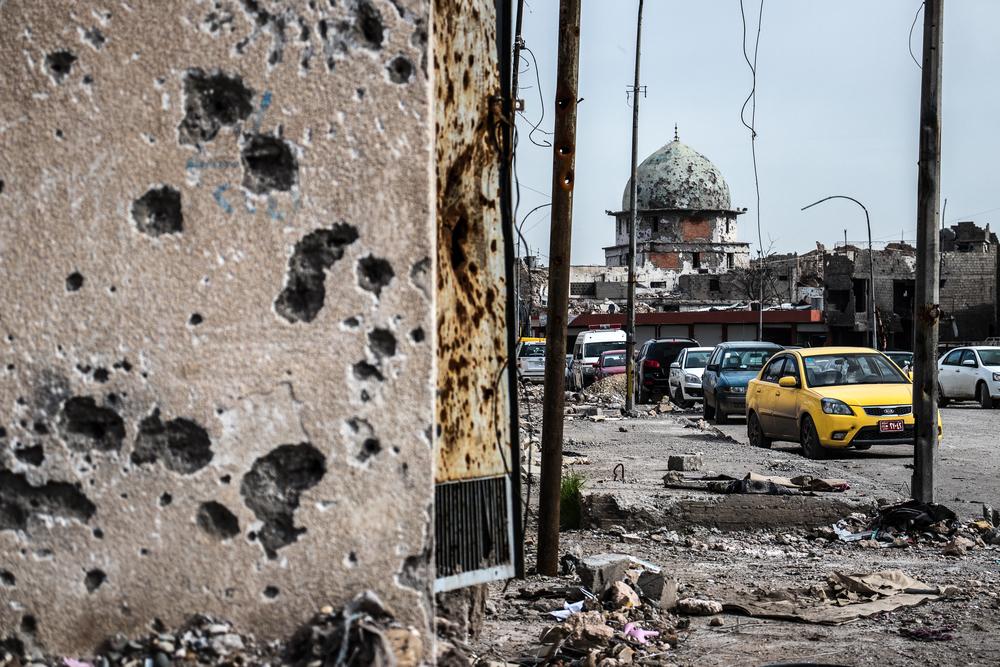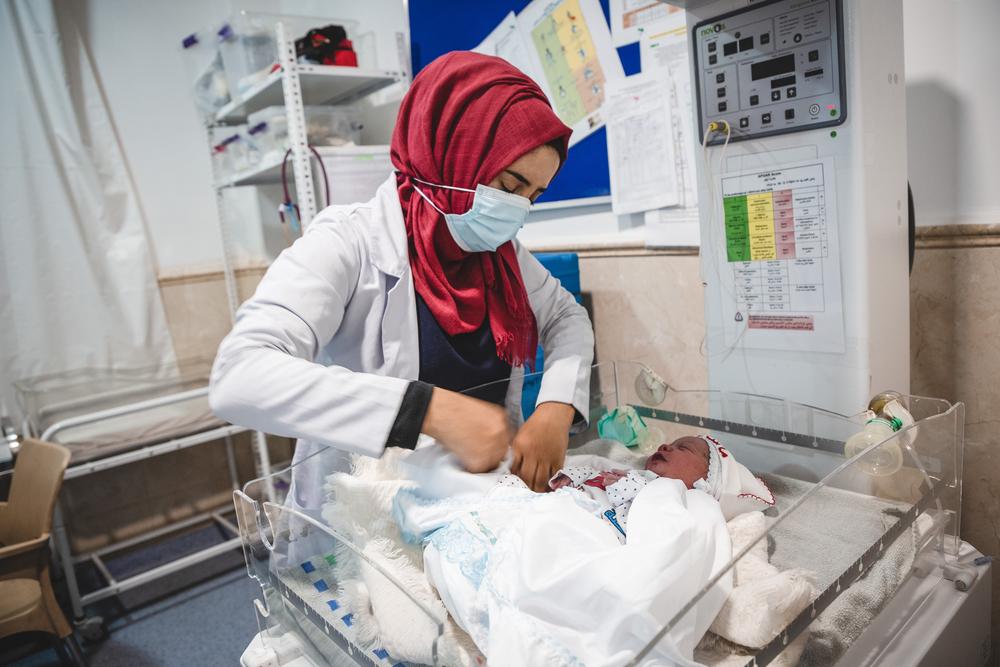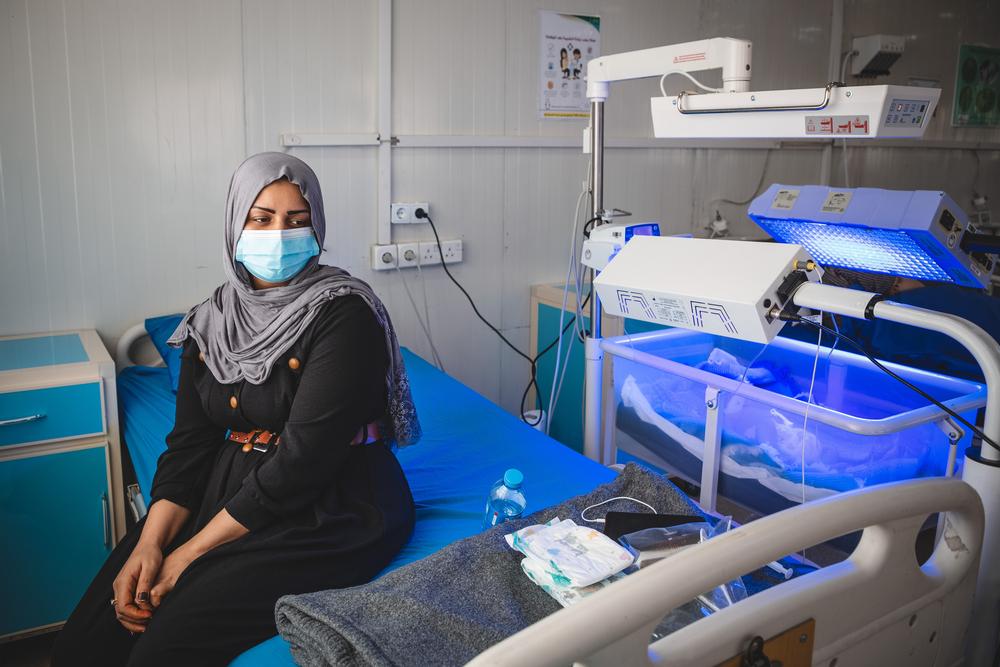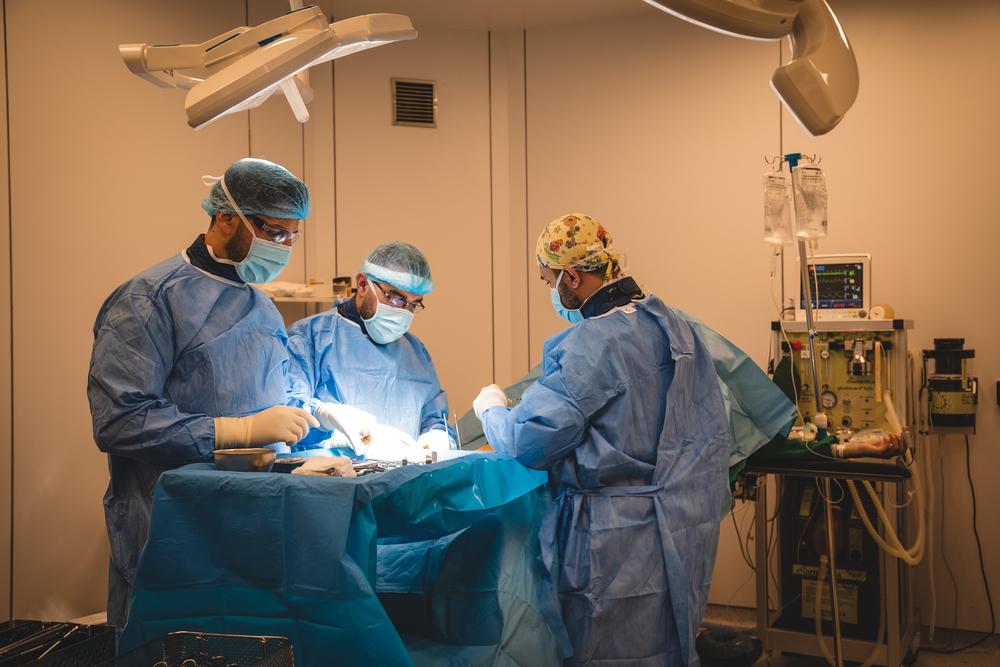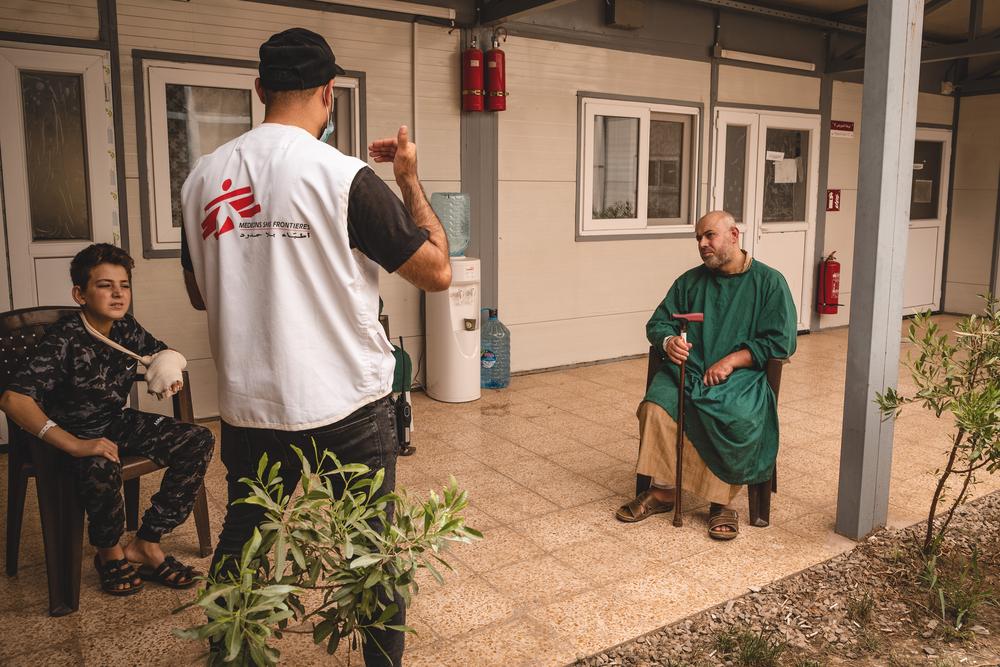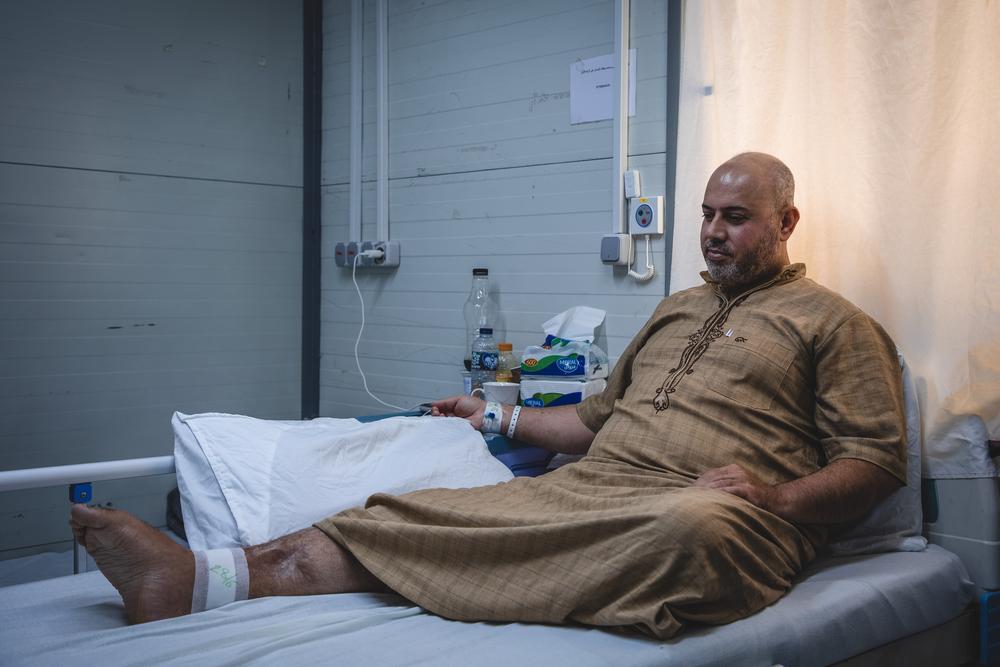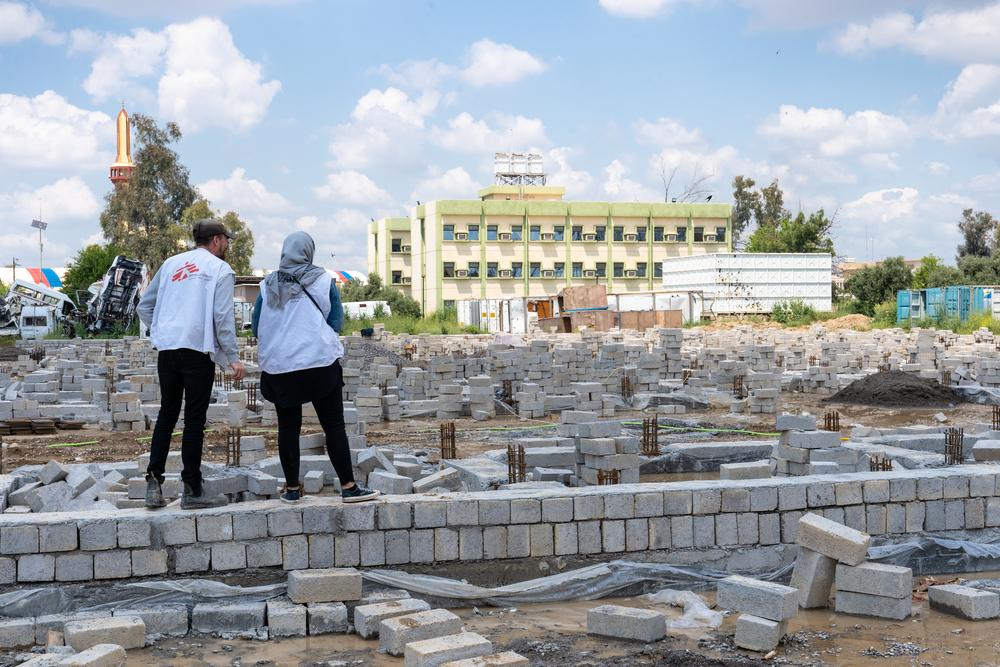
Mosul, Iraq: A slow road to recovery for the city of two springs
In 1 click, help us spread this information :
In October 2016, the military offensive to retake the city from the Islamic State group (ISg) began. The battle was officially declared “over” five years ago, on 10 July 2017. For the people of Mosul, life has slowly resumed, but rebuilding the city is still taking time, and the healthcare system is no exception to that. The voices of Mosulis tell the story of a community’s effort to face daily challenges, a story of resilience and hope.
Mother of two springs, that is what we call the city”, says Imad Abdullah, a patient at the MSF-run Al-Wahda hospital for orthopaedic surgeries in East Mosul, that sits on the left bank of the Tigris River.
“Nowhere in the world you can find this beautiful season happening twice.” In 2016, Mosul, Iraq’s second largest city, experienced one of the deadliest urban battles since the Second World War. “When I think about what Mosul has been through during the war, it is as if my son was in the emergency room, and me, and all the other inhabitants, were waiting outside, worried, and hoping he will survive.” said Imad.
Five years after the battle officially ended and Iraqi forces retook the city from the Islamic state group, people have returned to Mosul and life in the city is resuming, despite the many challenges people face and the destruction that is still visible.
From a war-torn town to a lively city
“Mosul has seen radical changes over the last five years,” said Sahir Dawood, MSF’s health promoter in Mosul. “The first time I went back to the city, just after the end of the battle, it felt like a ghost town. I would look to my right, to my left, and the only things I saw was rubble, destroyed buildings, and empty streets, with a few exhausted people here and there. But now, when I go around the city, I see people working and going out. I see buildings standing, streetlights lit during the night.”
Today, in Mosul, bridges that were destroyed during the war have reopened and West and East Mosul are reconnected again. Over the past five years, people living in Mosul have seen the streets change, as barriers and checkpoints were gradually removed—a sign of improved security. Today, parents are no longer afraid to let their children play outdoors and send them to school. “Life changed from darkness back to light for us,” said Saad Hamdoon, the uncle of Hamdoon Jassim, a patient at MSF’s Nablus field hospital in West Mosul. The teenager was waiting in the emergency room with a plaster cast on his left foot, ready to be discharged.
“Mosul is home”
A wide range of initiatives pop up in Mosul every day: people volunteer to remove the rubble in the old city, to repair houses, to clean the streets. Influencers and social media activists from the city have launched fundraising campaigns to help families rebuild their houses or start businesses. A few days ago, a picture was shared on the social media page of one neighbourhood, showing a child who waters the newly planted trees on his street every night. The trees themselves were planted by a group of volunteers. This is just one example of thousands of initiatives led by people in Mosul. “These efforts need to be acknowledged and praised because these people work tirelessly without looking for any personal advantage,” said Hanan Arif, an MSF staff member in the Al-Wahda hospital. “Because Mosul is home, their only wish is to rebuild the city and help its people recover their lives.”
People are not only rebuilding the city, but also their lives. Ahmed Abdullah has been working with MSF since 2017. He started at MSF’s Hamman Al-Alil field trauma hospital for war wounded patients who were brought to the facility from the city. “I’ve seen people, foreigners working for humanitarian organisations, running before us, faster than us, rushing to rescue the wounded. We, the people of Mosul, we were doing our best, but we were still very much in a state of shock, because of what we have been through. Step by step, with the encouragement of the international teams, and the strong relationship we have built together, we have overcome the shock. We started to rush too, to rescue the wounded from our city. It was the first time we were involved in saving lives. We felt a huge accomplishment. Before, the only realities we lived were brutality, killing and mass displacements. We were not very familiar with the humanitarian spirit. Now a big part of me has changed thanks to humanitarian work. Because I have seen humanity as I never had before.”
Needs still outweigh recovery efforts
Even though the people of Mosul feel change, their daily reality is not yet without challenges. Many families lost everything in the war and still struggle earning a livelihood and to find suitable accommodation. Some families lost people who earned their only source of income, so restarting from nothing can take them many years. Because of the level of destruction of the city, the number of houses available to host families dramatically dropped. When the inhabitants slowly came back, some poor families had to live in damaged houses while many others had to rent other accommodation, despite facing financial difficulties. Without job opportunities, especially for young people, it is hard for many families to settle. The slowly recovering economic and social situation is an extra burden on people.
Mosul once had the second-largest healthcare system in Iraq, but the situation is still far from what it used to be before the war. As medical facilities were heavily damaged during the war, people still struggle to access affordable high-quality healthcare. The destruction did not spare facilities outside of Mosul neither, therefore people often have to make long trips to reach the few functioning ones in town.
Patients are coming from afar to give birth in our hospital, they are supposed to access those services in any hospital or healthcare facility close to them, but that is not the case. To date, people lose their lives on the roads even if they only need simple procedures or treatment, like blood transfusion or things that should not be hard to provide.” , said Sulav Al-Hamza, MSF’s maternity supervisor in Nablus hospital, West Mosul.
“I’m a mother of three children, so I often need to visit healthcare facilities,” says Jihan Ahmed*, caretaker and aunt of Samad, a newborn hospitalised at Nablus hospital and born by caesarean section surgery the night before. “We struggle to access affordable quality care, that’s why we came all the way from East Mosul to this hospital in West Mosul.” Now, the main hospitals have reopened in temporary structures and caravans, which are just short-term solutions. Some facilities are currently far from their previous locations, which were much more central, making it harder for people to reach them as quickly as they could previously.
There are also still supply and medication shortages. For example, far fewer surgeries per day are possible now compared to before the war, as resources have to be rationed and because the same bed and surgical capacity does not exist anymore.
During the battle and just after, MSF teams treated victims of the war in the emergency department and the operating theatre of Nablus hospital. These activities evolved as medical needs changed. “Today the needs are clearly still massive,” said Esther van der Woerdt, MSF’ head of mission for Iraq. “The three MSF facilities in town continue to receive large numbers of patients coming to seek maternity, paediatric, emergency or surgical care.” In the first six months of 2022, 3,853 children were born in MSF’s two maternity hospitals and 489 surgeries were performed in Al-Wahda facility.
Enduring consequences of war
Faris Jassim was injured during the battle. He has suffered several complications, went through 25 surgeries, and has still not fully recovered. “I went through very complicated moments after being injured,” he said. “For two years I had suicidal thoughts because of all these surgeries and treatments that seemed endless to me. But when I started to see my leg recovering, I felt hope again. It’s a huge leap to go from wheelchair-bound to walking independently now.” Faris is about to be discharged from the MSF-run Al-Wahda Hospital in East Mosul and the first thing he is eager to do is to go back to work in his shop.
In 2017, the majority of patients in MSF facilities in and around Mosul were dealing with psychological issues after what they have been through. Although mental health needs have reduced, the trauma people experienced is not forgotten. “During the battle, we were locked in the city,” said Rahma, MSF’s translator from Mosul. “We had no other choice but to witness the violence and the war. What we experienced had an impact on our mental health. Even today, I hear sounds of rockets and explosion—even if they are only in my mind.”
Halfway over the bridge I stopped and looked back to West Mosul. The scene of smoke and destruction broke my heart. It was such a pain to see Mosul, our beloved mother like that, dying in front of our eyes" Hanan, living in Mosul
During the war, people lived in constant fear thinking they may lose their house, their family members or their life at any time. As a mother, Hanan had to reassure her children that they would be ok and show strength for her whole family. Due to the violence, they eventually had to flee their home in West Mosul. “We fled our neighbourhood by foot, crossing to East Mosul. Halfway over the bridge I stopped and looked back to West Mosul. The scene of smoke and destruction broke my heart. It was such a pain to see Mosul, our beloved mother like that, dying in front of our eyes.”
Today, MSF offers a safe place for patients to share their stories and talk about the trauma they experienced. Through mental healthcare sessions for individuals or groups, people can unlock themselves and slowly build coping mechanisms with the help of mental health professionals. Coming to ask for mental health support can be difficult as—like in many places around the world—the subject remains taboo in many families.
People of Mosul have faced many difficulties, but they never lack courage, patience and strength. “Things are improving step by step,” says Dawood. “Because what Mosul has been through is not simple. I don’t think that any other city has experienced that. There is no magical solution to fix everything quickly.”
“It's very satisfying to actually see these positive developments in the city,” said van der Woerdt. “And we wish that rebuilding the city and the healthcare system will pick up more speed as we go. Because Mosul still has a long way to go to stand again and for its people to feel a full recovery. And this can only be achieved with support. Mosul will need support for years to come.”
*Name has been changed.
